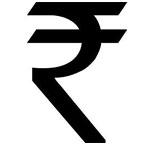The rupee posted its biggest single-day gain in nearly a month on Wednesday as the Reserve Bank of India's renewed efforts to shore up the currency by tightening cash conditions began to yield results.
The RBI took new steps on Tuesday to support the rupee, including making it even harder for lenders to access funds with measures such as lowering the amount banks can borrow under its daily liquidity window.
The efforts signal the RBI will stay the course with its defence of the currency despite the risks to economic growth.
"I think these measures will stay in place for at least three to four months. These are not temporary," said Param Sarma, chief executive at NSP Forex.
"These steps will only eliminate volatility from the market but for real appreciation bias to set in we need real flows, which can come in through an overseas bond sale. The rupee will hold between 58.50-60 band as long as these measures stay,".
The partially convertible rupee closed at 59.13/14 per dollar compared with 59.76/77 on Tuesday. It rose to as high as 59.0150, its strongest since July 1. The unit gained 1.1 per cent on the day, its biggest single-day gain since June 28.
Rates and equity markets, however, reacted negatively to the further tightening of liquidity with the benchmark 10-year bond yield rising to a 14-month high of 8.50 per cent while the 1-year overnight swap rate rose to a near 5-year peak.
Traders will continue to monitor any comments from policymakers for near-term direction.
"Rupee is likely to strengthen further towards 58-57 levels in the coming days as the central bank's actions are giving some strength to the local currency," the head of foreign exchange trading at a private bank said.
Expectations of further tightening of domestic rupee liquidity pushed up onshore forward rates. The one-year onshore forward premium rose as high as 518.75 points, its highest since August 1998.
Traders said the spot rupee was also helped by some long unwinding seen in the offshore non-deliverable forwards. The one-month NDF contract was at 59.57 while the three-month was at 60.46.
In the currency futures market, the most-traded near-month dollar/rupee contracts on the National Stock Exchange, the MCX-SX and the United Stock Exchange all closed around 59.13 with a total traded volume of $3.3 billion.
Meanwhile, India's cash rate jumped, bond yields surged and banking stocks tumbled on Wednesday after the RBI's intensified defence of the beleaguered rupee raised concerns about the cost to the economy if the attempted rescue failed.
The rupee rose to a one-week high in afternoon trade after RBI showed it was serious about propping up the currency by accepting abnormally high yields in an auction of Rs 120 billion of treasury bills.
The sharp moves in credit markets showed the tightrope the RBI is walking -- in trying to keep the rupee above a record low of 61.21 per dollar hit on July 8, it risks forcing up borrowing costs for companies as the economy grows at its slowest in a decade.
The RBI accepted a yield of 11.0031 pct on three-month bills and 10.4649 pct on one-year paper, the highest yields in at least six years and above market expectations, one week after rejecting all bids as too high.
Its strategy will be further tested with two more debt sales this week to raise a combined Rs 210 billion, as continuing to accept high yields could prove costly for a country trying to tame its fiscal deficit.
"The higher T-bill yields signal the clear intention of the central bank to pull out liquidity from the system," said Shakti Satapathy, fixed income analyst at AK Capital.
"Though today's auction were accepted at a higher rates, the sustainability of higher yields wouldn't be acceptable in the subsequent weeks."
Long-term problems
The rupee rose to 59.08 per dollar after the auction, up more than 1 per cent on the day, but was still not too far from a close of 59.89/90 on July 15, when the RBI said it would drain cash from the market and raise short-term rates sharply.
On Tuesday, it further cut the amount banks could borrow from it and also compelled them to meet reserve requirements daily.
The steps may create short-term demand for the currency by creating a shortage of cash, but none of the RBI's measures are expected to help resolve long-term weights on the rupee such as a record current account deficit and stalled reforms.
A failure to significantly boost the rupee would raise concerns the RBI would have to take stronger action to create demand for the currency, such as raising banks' reserve requirements or raising its policy interest rates. Its next policy review is on July 30.
"The establishment has been telling the nation that the measure is only short term in nature and there is no change in the stance of the central bank on long-term interest rates. Believe it at your own peril," Jyotheesh Kumar, executive vice president of HDFC Securities, said in an email to clients.
The benchmark 10-year bond yield hit a 14-month high of 8.50 per cent, up 33 basis points on the day and 95 basis points since July 15.
The overnight cash rate jumped to a four-month high of 10 per cent, before easing back to 8.50 per cent. That was still up around 200 basis points from Tuesday's close
Banking shares dropped, especially those who are more dependent on short-term funding. Yes Bank lost 12 per cent and non-bank financial companies also fell, with Shriram Finance Transport down 4.5 per cent.
Another concern is that having to pay higher interest rates for a prolonged period could endanger the government's pledge to cut the fiscal deficit to 4.8 per cent of gross domestic product by next March.
Standard & Poor's already has "negative" outlook on the country's rating, and a cut would lower it to "junk" status.
The government is considering options of its own, including raising money from citizens abroad in a bid to reduce its record current account deficit.






